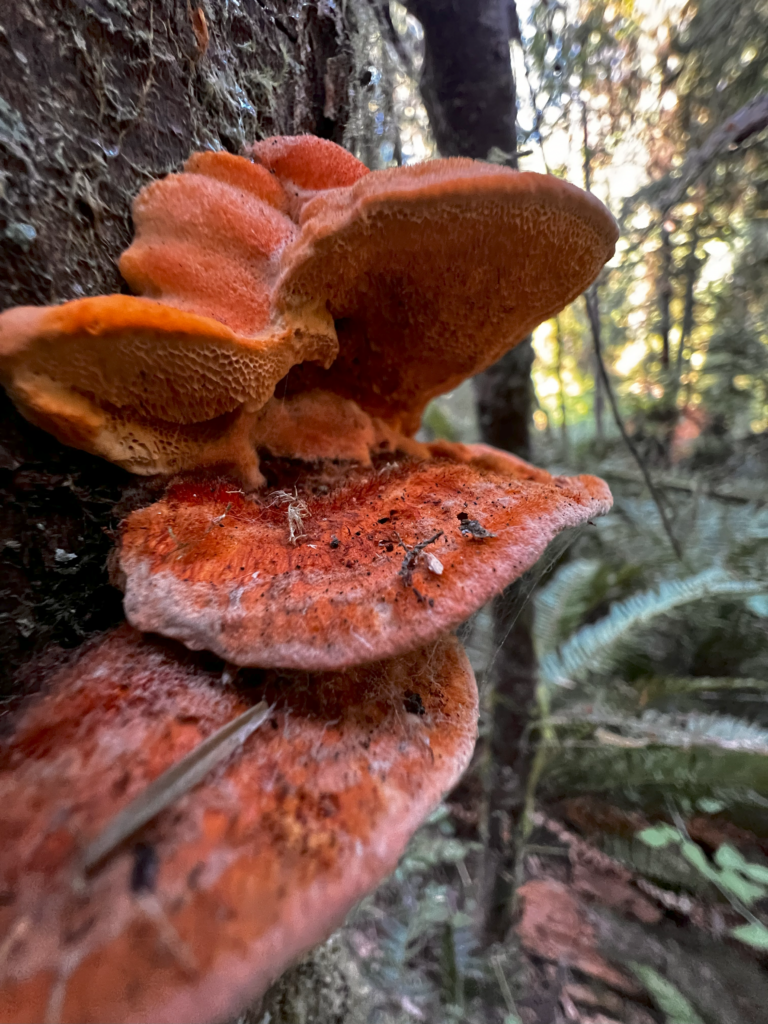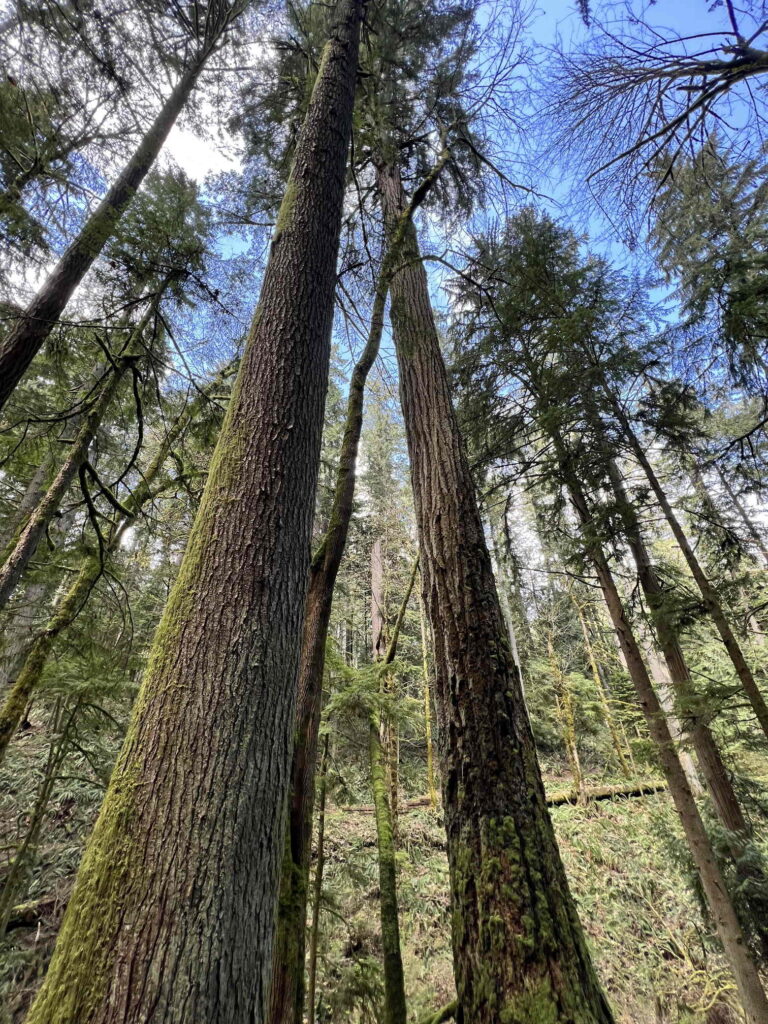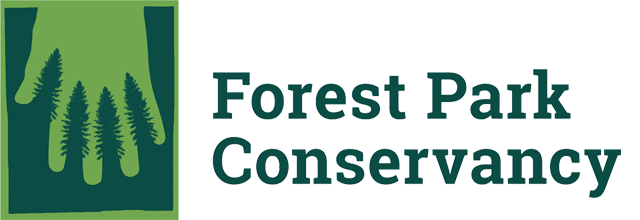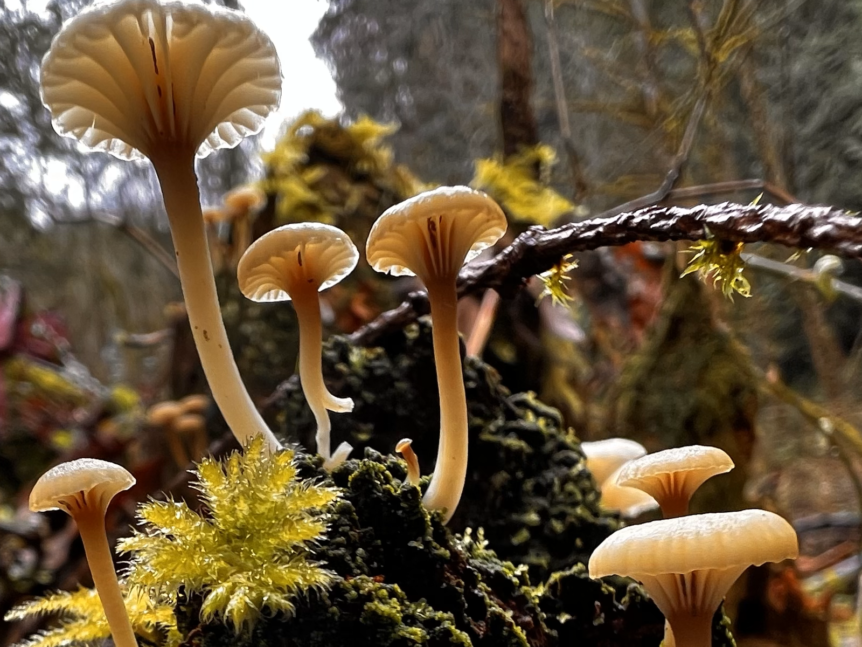This blog post was put together by our friends at the Coalition of Oregon Land Trusts (COLT) and was featured in their 2023 State of the Lands Report. We encourage you to read the full report to learn more about the great work COLT is doing, as well as to hear more stories about land trusts in the state of Oregon.
Nestled in the Tualatin Mountains just north of Forest Park is the Ancient Forest Preserve (AFP)—39 acres of land that holds one of the region’s last stands of old growth. The Preserve is abundant and teeming with life—from towering 600-year-old Doug Firs to the lichens growing on its bark to the owls nesting on its branches.
Forest Park Conservancy (FPC) helps steward and care for Forest Park, but most of the land they tend is owned by Portland Parks and Recreation. Forest Park Conservancy purchased the AFP in 1993 in order to prevent it from being logged. Since then, the AFP has been resting. Then two years ago, Forest Park Conservancy’s Land Stewardship and Workforce Development Manager Matt McLean started utilizing more traditional land stewardship practices in conjunction with modern machinery and techniques.
Drawing on his experience, Matt’s approach to caring for the land is about finding balance—between planting for a changing climate and drawing from traditions that have evolved over hundreds of thousands of years spanning generations of Indigenous peoples in order to preserve cultural ties to the land.
“Our main goal is to make sure the land continues to function as a first foods bank, medicine preserve, and ceremonial grounds—on top of critical habitat for numerous animals that live there,” said Matt, who is a tribal member of the Metepenagiag Mi’kmaq Nation. “I don’t spray anything with herbicides. Everything’s done by hand or with tools we’ve developed and things I’ve learned from my mentors.”
“I was born in Coast Salish territory, now so-called Vancouver, BC. I’ve lived off and on my reservation over the years, I’ve lived in Hawaii, all over. I have been a traveler for a long time and I am a guest in these lands,” said Matt. “I’m not a stand-in for Chinook; Grand Ronde, or other Tribal people from this area, I intend to respect the salmon people and prioritize doing things in a good way and being of service, which means advocating for lands to be returned to the original stewards here, and working on restoring lands that have been destroyed or degraded by non-native plants and people.”
Traditional Ecological Knowledge is rooted in the belief that there are relationships between all living beings, and that humans are not separate from the land, but an essential part of it.
“The land is the people. The people are a reflection of the land. The idea that humanity does not belong in the places that we have thrived in since time immemorial is one of the most harmful ideas that has come out of Western ideologies,” said Matt.
FPC has opened the Preserve to Indigenous people in the community for traditional harvests, and is working to build partnerships with local tribes and Native organizations.
“That is land justice. Increasing habitat, increasing access for peoples, and ultimately giving land back to Indigenous people. This is the way forward.”



